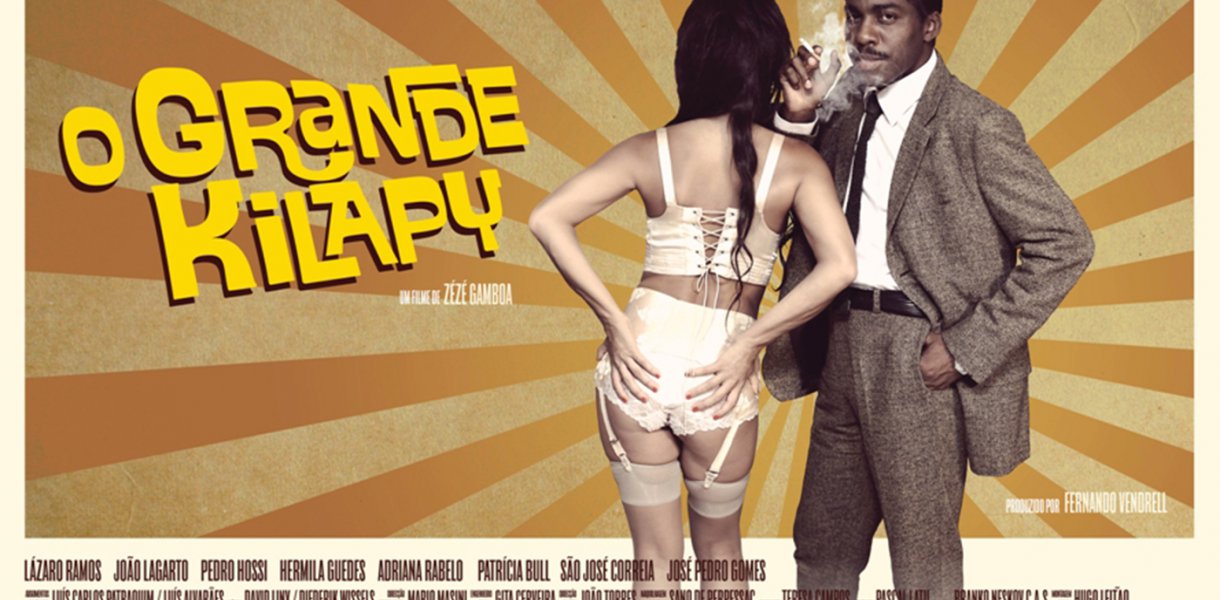The Great Kilapy
NATIONAL PRESENTATION (>12)
13 Oct 2014 - 21:30
Grande Auditório
Admission 3 €
Joãozinho (Little Johnny) was a phenomenon in his time. As a promising young Angolan of mixed blood, he studied engineering in Lisbon, where he picked up the social skills of the power elite in the fascist government, then suffered a broken leg for two-timing a minister’s daughter. The secret police also had it in for Joãozinho because he was popular with fellow students working to incite revolution. They get nothing from interrogation but pack him out of Lisbon and home to Angola. His father calls in a favour to place him at the Colonial Tax Office in Luanda, where Joãozinho artfully pockets money skimmed off transactions to fund a luxury lifestyle and support his friends in the growing liberation movement, even as he takes no part in it. He frequents the best tailors, drives a fancy car, steps out with beautiful women and develops a reputation for always buying drinks for everyone in the house. Joãozinho’s recklessness remains unflappable; but his prestige in the community grows only to the point where his behavior becomes intolerable to the establishment old guard.
In the Angolan language of Kimbundu, Kilapy means scheme, fraud or swindle.

Poster of "The Great Kilapy", by Zézé Gambôa
ZÉZÉ GAMBOA
Born in Luanda in 1955, the youngest of six siblings in an Angolan middle class family. At age 17, immediately after the April 25th 1974 revolution, he began work as a newsreel director for Angolan television, where he remained until 1980. A chance meeting in Lisbon with Antoine Bonfanti, who was sound engineer on a number of French Wave films, led Gamboa to work in sound engineering in Paris and live in Brussels, where he directed his first feature documentary, “Mopiopio: The Breath of Angola” (1991), depicting Angolan society in Luanda during the time of war and dictatorship, with period music as the guiding theme.
His second documentary, “Dissidência (Dissidence)” (1998), examines the civil war through the eyes of dissidents and their personal visions for Angola’s future. Both documentaries were well received and “Mopiopio” won awards at several film festivals. In 1993, Gamboa returned to Lisbon, where he continued work as a film director. His first dramatic feature, “O Herói (The Hero),” (2004) was extremely well received internationally and played at many festivals, including Sundance and Ouagadougou, winning numerous awards. In 2010, he began working on “The Great Kilapy.”
Tickets for The Great Kilapy
Please choose a date:
You will be redirected to the Ticket Office website to purchase the tickets.
X